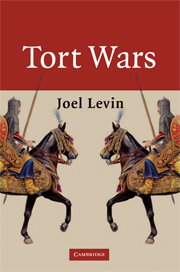2 - Discovering Tort Law
Published online by Cambridge University Press: 05 June 2012
Summary
While awaiting execution, Socrates is visited in jail by his old friend Crito. Crito proposes an easy, and relatively painless, escape from unguarded Athens to a new city where Socrates can live safely in those preextradition times. Socrates famously protests this proposal on a number of grounds, both prudent – it would be humiliating, others would be tainted or penalized for participating, non-Athenian cities have cultures antithetical (slovenly) or inimical (militaristic) to his liking – and moral. The moral grounds are simple and extraordinary, prompting a prediction of future moral behavior rarely, if ever, made in Western culture or in its literature. Central to Socrates' reasoning is the absolute irrelevance of the misconduct of others in justifying a response of the aggrieved.
Socrates: Then we ought never to act unjustly?
Crito: Certainly not.
Socrates: If we ought never to act unjustly at all, ought we to repay injustice with injustice, as the multitude thinks we may?
Crito: Clearly not.
Socrates: Well, then, Crito, ought we to do evil to anyone?
Crito: Certainly I think not, Socrates.
Socrates: And is it just to repay evil with evil, as the multitude thinks, or unjust?
Crito: Certainly it is unjust.
Socrates: For there is no difference, is there, between doing evil to a man and acting unjustly?
Crito: True.
[…]
- Type
- Chapter
- Information
- Tort Wars , pp. 39 - 87Publisher: Cambridge University PressPrint publication year: 2008



